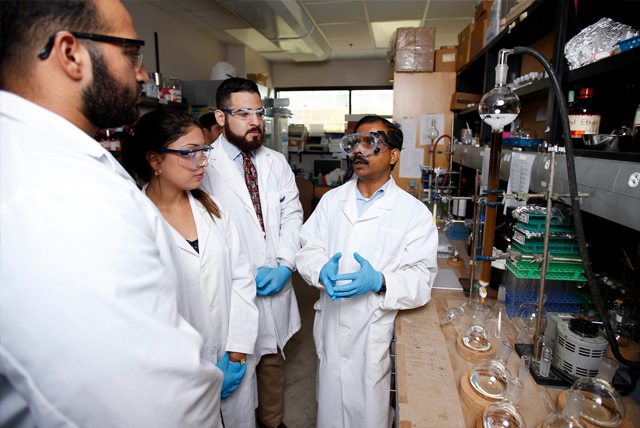Document Type
Article
Publication Date
7-2014
Abstract
Biodegradable electrospun poly(ε-caprolactone) (PCL) scaffolds were coated with platelet-rich plasma (PRP) to improve cell adhesion and proliferation. PRP was obtained from human buffy coat, and tested on human adipose-derived mesenchymal stem cells (MSC) to confirm cell proliferation and cytocompatibility. Then, PRP was adsorbed on the PCL scaffolds via lyophilization, which resulted in uniform sponge-like coating of 2.85 (s.d. 0.14) mg/mg. The scaffolds were evaluated regarding mechanical properties (Young’s modulus, tensile stress and tensile strain), sustained release of total protein and growth factors (PDGF-BB, TGF-β1 and VEGF), and hemocompatibility. MSC seeded on the PRP-PCL nanofibers showed an increased adhesion and proliferation compared to pristine PCL fibers. Moreover, the adsorbed PRP enabled angiogenesis features observed as neovascularization in a chicken chorioallantoic membrane (CAM) model. Overall, these results suggest that PRP-PCL scaffolds hold promise for tissue regeneration applications.
Recommended Citation
Rodríguez de Barbarín, C., Bernès, S., Macossay, J., & Cassidy, P. E. (2006). 4,4’-(1,1,1,3,3,3-Hexafluoropropane-2,2-diyl)bis(benzoyl chloride). Acta Crystallographica Section E, 62(8), o3602–o3603. https://doi.org/10.1107/S1600536806028236
First Page
180
Last Page
188
Publication Title
Materials Science and Engineering: C
DOI
10.1016/j.msec.2014.03.065



Comments
© 2014 Elsevier B.V. Original published version available at https://www.doi.org/10.1016/j.msec.2014.03.065